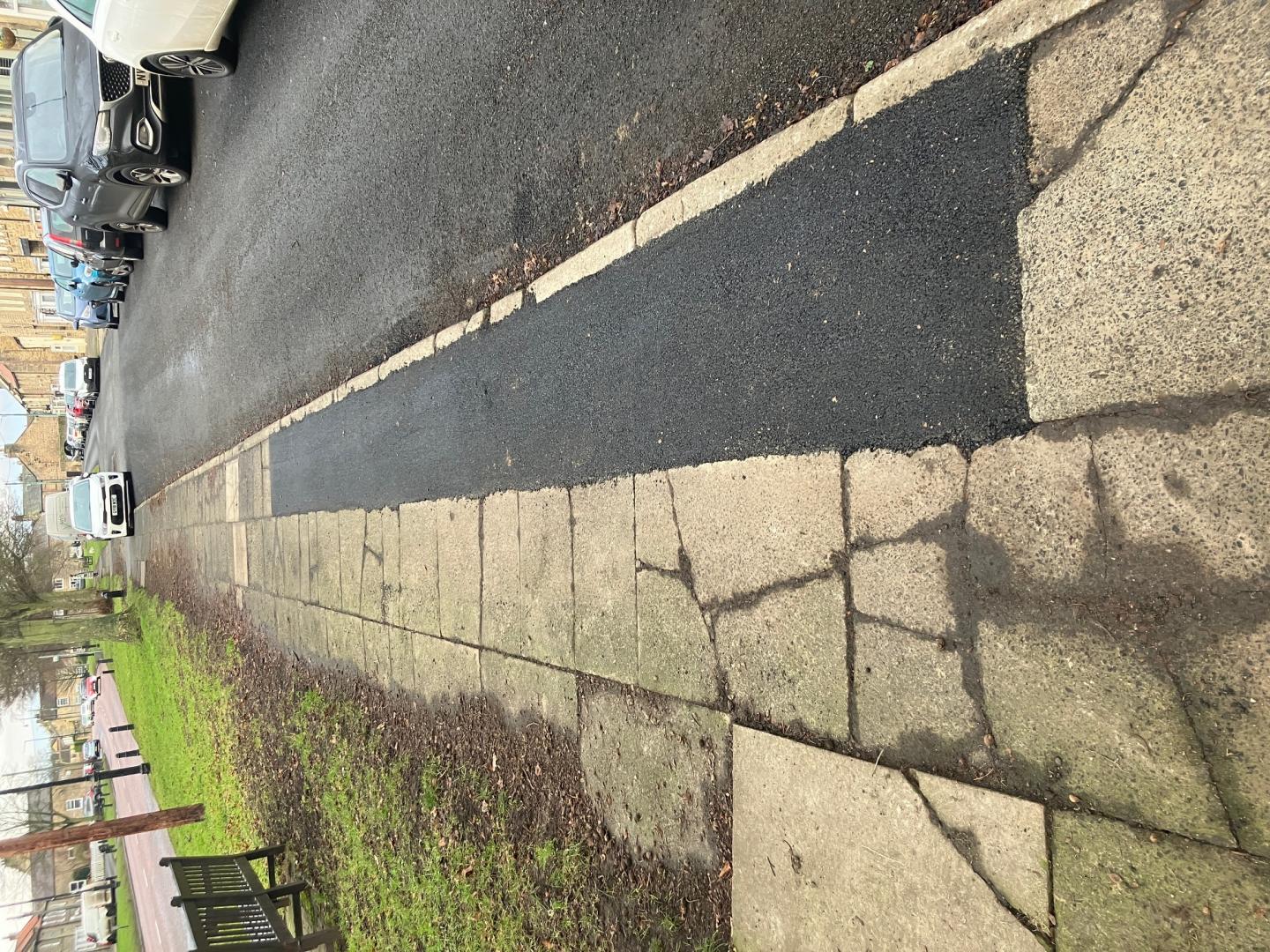THE use of Tarmac to repair a paved footpath in a conservation area has been described as bizarre and appalling by parish councillors.
County officers say the work was carried out in the interest of public safety.
The footpath on Staindrop’s north green has long been a bone of contention and has suffered neglect as Durham County Council and Raby Estate wrangle over who is responsible for it.
Parish councillors insist it had previously been maintained by Teesdale District Council and responsibility shifted to Durham County Council when the unitary authority was established.
At their latest meeting parish councillors “despaired” over repairs that had been made to a section of it.
Chairman Cllr Ian Royston said while he had not seen the work being done, he had noticed a county council vehicle laden with Tarmac parked next to it.
Cllr Ed Chicken said: “They have removed three or four paving stones and replaced it with Tarmac, in the middle of a conservation area.”
Cllr Dilys Gaygill added: “They couldn’t have made a more insensitive repair if they tried – it is as if “what can we do to make this horrible?”
Cllr Roger Humphries explained residents of the village had contributed towards it being paved in the 1870s because it has been “a mess” , after which it had been maintained by the highways authority.
He said: “And now, for some reason it has all stopped, and it has now reverted to being a private footpath. It is appalling.
“It has been a public footpath since the early 1800s – it is just bizarre. I despair.”
It is not the first time parish councillors have complained about the use of Tarmac to make repairs in the village’s conservation area. They have previously been upset at repairs made to the village cobbles, which are the last vestiges of a medieval market place.
Cllr Chicken recommended writing to the county councillors who represent the village which would read: “We have been concerned about this for [many] years and now we find that your staff have, without any consultation, slapped Tarmac on it, as is their wont to do on the cobbles.”
The council agreed unanimously to the motion.
Paul Watson, Durham County Council’s strategic highways manager, said: “Our highway inspector identified a number of broken paving stones that had been damaged as a result of vehicles parking on them. In the interests of pedestrian safety we replaced the damaged paving stones with a Tarmac patch.
“A patch such as this is often used to prevent further damage to the footpath and it reduces the risk of pedestrians tripping when paving stones have become damaged by vehicles.” .
ADVERTISEMENT
Villagers hit out at unsightly path repair in Staindrop
ADVERTISEMENT
ADVERTISEMENT
ADVERTISEMENT






